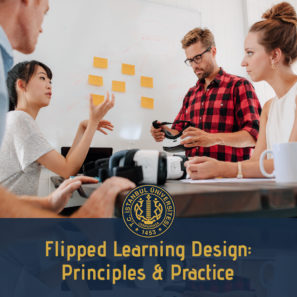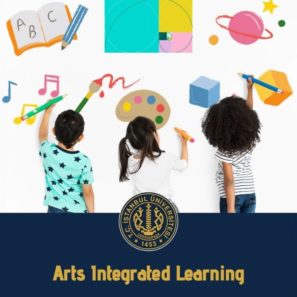Preparatıon:
The participants of the course are invited to participate in practice based exploration and design activities throughout the sessions. Exchange of best practices as well as the group presentation of the collaboratively designed tasks that aim the development of different skills at varying levels will be among the requirements of the course. The participants might find it useful to read some of the below listed reading material before joining the training as well:
- Ellis, R. (2003). Task-based language teaching and learning. Oxford: Oxford University Press.
- Long, M. (2015). Second language acquisition and task-based language teaching. Malden, MA: Wiley-Blackwell.
- Samuda, V., & Bygate, M. (2008). Tasks in second language learning. Basingstoke, UK: Palgrave Macmillan.
- Van den Branden, K., Bygate, M., & Norris, J. M. (Eds.) (2009). Task-based language teaching: A reader. Amsterdam/Philadelphia: John Benjamins Publishing Company.
Course descrıptıon
Task based Language Teaching promises an innovative pedagogical frame for teachers as it engages the language learners in purposeful, problem-oriented, and outcome-driven tasks that are comparable to real-world activities. Acting with the assumption that real, meaningful communication is essential for language learning in order to improve communicative competence, TBLT promotes the planning, design and assessment of language practice through communicative tasks. Compared to the previously used exercises and activities in language teaching, tasks stimulate genuine interaction, bear a meaningful purpose to fulfill; are more cognitively demanding and easily adaptable to experiential learning. Hence, an effective design and implementation of tasks is doomed to result in improved student engagement, motivation and attainment– a win-win for both students and teachers.
This course allows participants to get to know, experiment and practice Task based Language Teaching with a practical focus on the most innovative aspects of tasks- in a safe and truly international learning environment, through discussing and sharing best practices with fellow teachers and education staff from across Europe. With its highly interactive and practice-based structure, the course aims to provide concrete examples, ideas and tools to inspire and support educators in their lesson planning and task design.
Methodology
The training takes on a highly practical and participative perspective with hands-on approach that comprises an examination of real task samples, design of communicative tasks and collaborative thinking/evaluation routines. We embrace collaboratively working methods that foster mutual learning and cooperation among participants. The focus of the training is on learning in an interactive and international environment applying knowledge of task types and task design to the real contexts and/or in the classroom. A wide array of pedagogical methods based upon experiential training, group and peer activities, learning-by-doing and best practices’ Exchange are employed throughout the course.
Learnıng Outcomes
This course aims to provide teachers, education staff and language practitioners with the much needed know-how to design and implement language learning tasks in the classroom
Therefore, upon successful completion of the course, the participants will be able to:
- Get acquainted with the main components and tenets of a task-based approach to teaching language;
- Identify, evaluate and apply different types of tasks for varying levels, skills and interests of language learners
- Learn how to design, prepare and deliver interactive language learning tasks addressing divergent groups of learners by making use of task design elements;
- Learn how to engage students and motivate them to establish effective collaboration and develop problem solving skills through the use of tasks;
- Construct and integrate tasks into their own teaching
- Exchange good practices and discuss challenges with fellow colleagues and the course trainers.
Follow-up
The participants will be required to develop and share their own task based lesson scenario, to be followed by a structured feedback session. Additionally, given a chance to network with individuals and organizations working in the education field in Europe through everyday cooperation and team-building activities, the participants might further their practice on tasks by extended experience sharing sessions.
Specıfıcs
This standard indicative daily programme might be personalized on participants’ needs and professional profiles. Networking, preparation and team build up activities to be located on the first day; and follow up, specific needs and cultural activities on the last day.
Course Venue
Istanbul University – Cerrahpaşa Continuing Education Center
Course Date
| Date | Course Times | Course Content |
| Day1 |
|
|
| Day2 |
|
|
| Day3 |
|
|
| Day4 |
|
|
Game-based
INSTRUCTORS
Program Coordinator
Instructors
The number of partIcIpants
5 – 15 participants
CertIfIcate
Digital certificate.
Type of EducatIon - Place
Face to Face or Distance Education
PAYMENT
You can choose one of the following payment methods EFT and Credit Card.
BANK ACCOUNT INFORMATION
Euro Account
Banka Adı (Bank Name): TC Halk Bankası
Şube Adı (Branch Name): Cerrahpaşa
Hesap No (Account ): 0058 1000 60
SWIFT: TRHBTR2A
Explanation: İstanbul Üniversitesi Cerrahpaşa Sürekli Eğitim MerkeziEUR İBAN: TR51 0001 2001 5300 0058 1000 60
İlgili ürünler
Erasmus+ KA1 Courses
Erasmus+ KA1 Courses
Erasmus+ KA1 Courses
Erasmus+ KA1 Courses
Erasmus+ KA1 Courses
Erasmus+ KA1 Courses
Erasmus+ KA1 Courses
Multilingual & Multicultural Learning in English Language Education
Erasmus+ KA1 Courses










